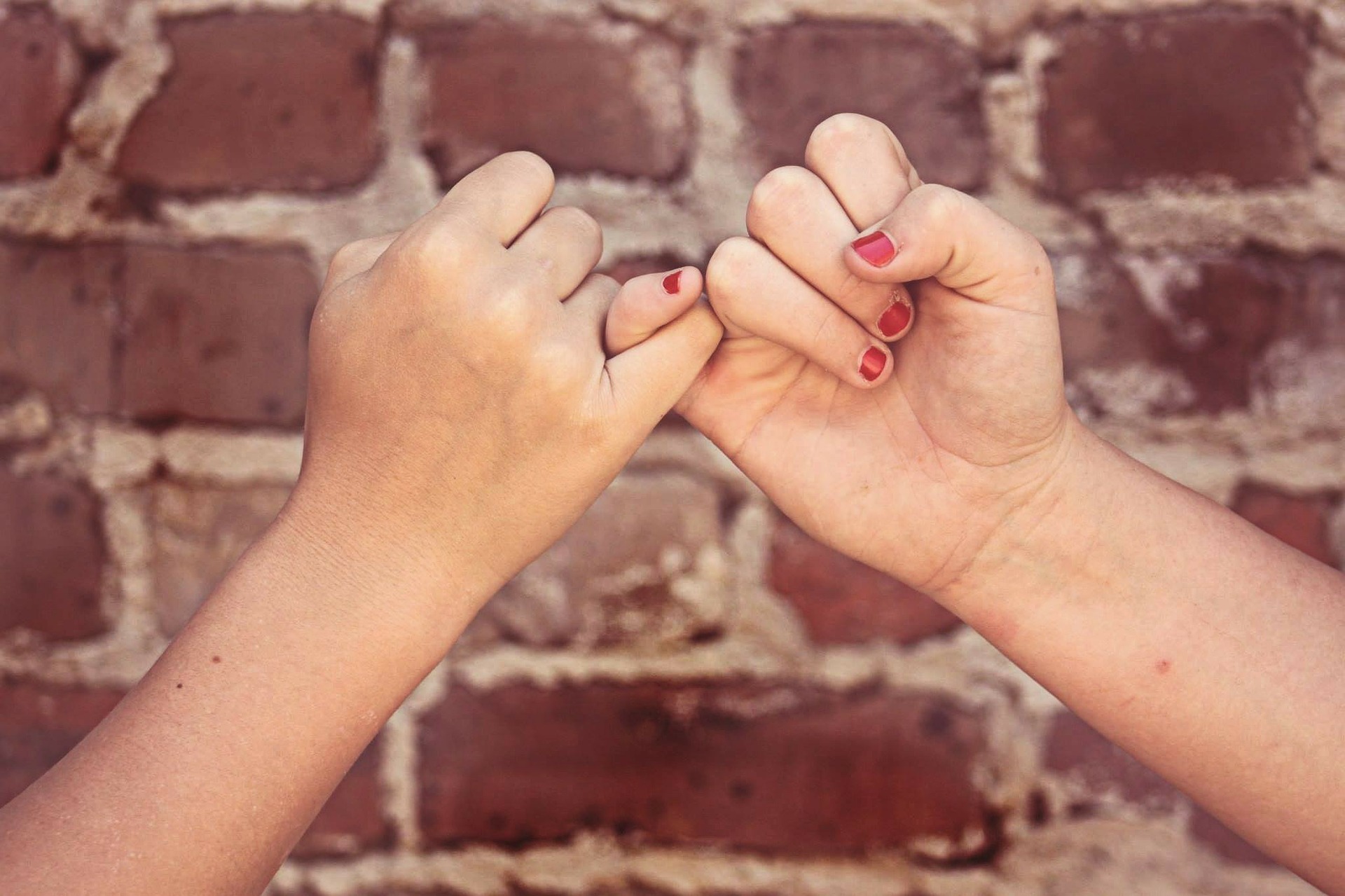You crook your dainty pinky finger and hold it out, your face quite solemn. “Pinky promise, daddy?”
I know how serious this is. It’s more than a promise – it’s a PINKY promise. In the hierarchy of commitments, only the super double dare holds more weight.
My own finger is extended in agreement. Our fingers hook together firmly for a brief moment, and then your face explodes into a smile. “Okay!” You run off to do something else, confident that whatever promises that were made would be kept.
I don’t know where you learned the pinky promise. Probably on the playground where most of the most important learning seems to happen. I know it was a staple of my childhood, even though I’m sure it was ancient even then.
It’s interesting to me that even at your age, you’ve figured out that the value in a promise is variable. Things can be said, but you might not actually count on it unless a further modifier is made. Talk is just noise but if accompanied by the word “promise” it suddenly holds value. And even saying it’s a promise isn’t enough, it holds more weight if it’s accompanied by some act. (I’m suddenly glad blood oaths never took off in this country, which isn’t a sure thing given the ubiquity of Game of Thrones.)
When you get older, it becomes rarer that a promise is made so explicitly, let alone with a gesture (although a ring is the ultimate gesture for one of the biggest promises you might make, but please don’t think of that for many many many years okay? Okay.) We adults might use a handshake, but that’s about it. As adults, we tend to be taken at face value and when we make a commitment we often are held to it, whether it’s personally or professionally. (Although I might start to use this at work. My client might ask, “Why is this deliverable late?” I can try responding “Did I pinky promise to have it you by close of business?” Hrm.)
My word is important. I feel that the commitments I make to others should take precedence. If I say I’m going to be somewhere? I’ll make sure I orient my day to make sure that happens. I commit to something for my friends or family? You better believe I’ll make it happen. I commit to a date at work for a deliverable? I’ll make sure I stay up the night before so that it’s done.
But what about the other types of promises? Namely, the ones I make to myself?
Different story.
Oh? It’s just for me? Pshaw! I can downgrade those. Move ’em to the side. Bottom of the to-do list. I’ll get to them eventually. Maybe.
Stephen Covey – he of Seven Habits fame – wrote famously that there are levels of development, the first of which was individual mastery. We move from dependence to independence, and from there to interdependence. But it all starts with ourselves. We need to take care of ourselves before we can reasonably take care of other people. This is something I still struggle with. I almost always put other’s people needs (or more rightfully stated, my perception of their needs) before my own. And that’s wrong.
I think of it as a paved path alongside some green and lush grass. Sticking to the path is easy at first. Over time, though, you start to step off that path and trod on the grass a bit. Maybe you’re in a hurry. Maybe instead of following the path around a sharp corner you take a short cut and cut through the grass. Maybe you do it gingerly at first and step back onto the path. But nobody gets hurt, so maybe after some more time you give yourself increased permission to simply walk on the grass. It becomes easier and easier to stray off your path the more you’ve already strayed. Pretty soon all that’s left of that grass is dirt, and there’s little difference between what your path was and thin mud.
That’s where I find myself at times. I want to stick to my own path, but years of failed – or incompletely kept – promises means I’m more apt to shrug in helplessness when I inevitably venture off of it. It’s not something that I’m proud of.
I’ll continue to try to do better keeping my commitments to myself. That’s my promise to you.
